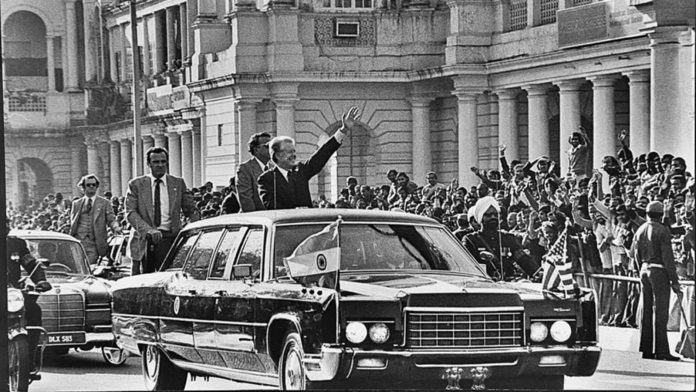The Peacemaking Visit of US President Jimmy Carter to India in 1978: A Legacy of Goodwill and Diplomacy
The Historic Visit of US President Jimmy Carter to India in 1978
In January 1978, US President Jimmy Carter made history by becoming the third US President to visit India. The visit came at a time when Indo-US relations were on the mend, with the days of the Indira Gandhi-Richard Nixon cold war long gone. The visit was seen as an opportunity to showcase the peacemaking credentials of both Carter and Indian Prime Minister Morarji Desai.
Carter, who had not yet received the Nobel Peace Prize, and Desai, who had not yet been honored with the Bharat Ratna or the Nishan-e-Pakistan, were known for their ability to bring feuding factions and nations to the negotiating table. However, the meeting between the two leaders was not without its challenges, as Carter pushed for India to sign the Nuclear Non-proliferation Treaty while Desai urged the US to contain its atomic program.
Despite these conflicting demands, the visit marked a significant milestone in the relationship between India and the US, with both countries recognizing each other as democracies with much to offer the world. Carter’s visit also had a personal connection to India, as a village in Gurgaon was renamed Carterpuri in honor of the US President and his mother, Lillian, who had served as a volunteer in Mumbai.
As Carter celebrates his 100th birthday this October, he remains the longest-living president in US history. His legacy of goodwill and commitment to peace continues to inspire people around the world. From his humble beginnings as a Georgia boy born to a sharecropping family, Carter’s journey to the presidency and beyond has left an indelible mark on history.
Carter’s dedication to civil rights, his efforts to promote peace, and his commitment to service have earned him praise as one of the most principled and intelligent presidents of the 20th century. His post-presidential work, including his Nobel Peace Prize win and his humanitarian efforts in India, further solidify his reputation as a leader who understood the true purpose of political power.
As we reflect on Carter’s legacy and the future of leadership in a rapidly changing world, his example serves as a reminder of the importance of humanizing, rather than weaponizing, political power. In an era of AI-enabled governance and algorithm-driven decision-making, the lessons of Carter’s presidency resonate more than ever.
